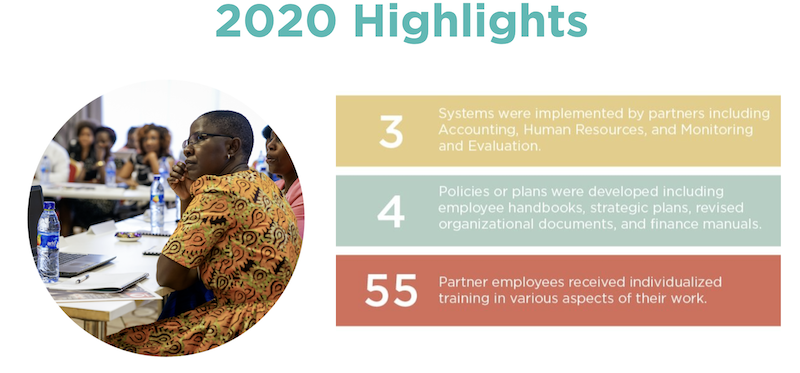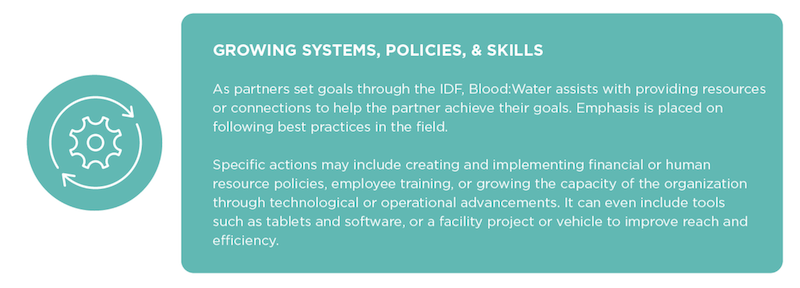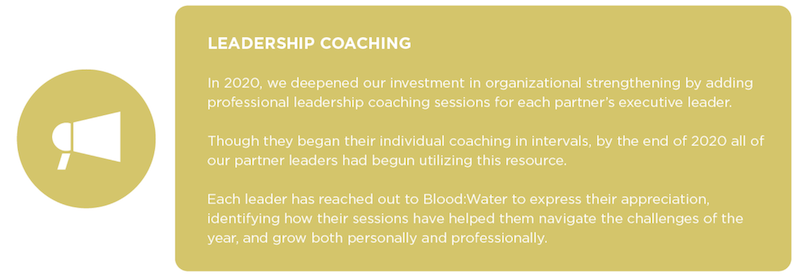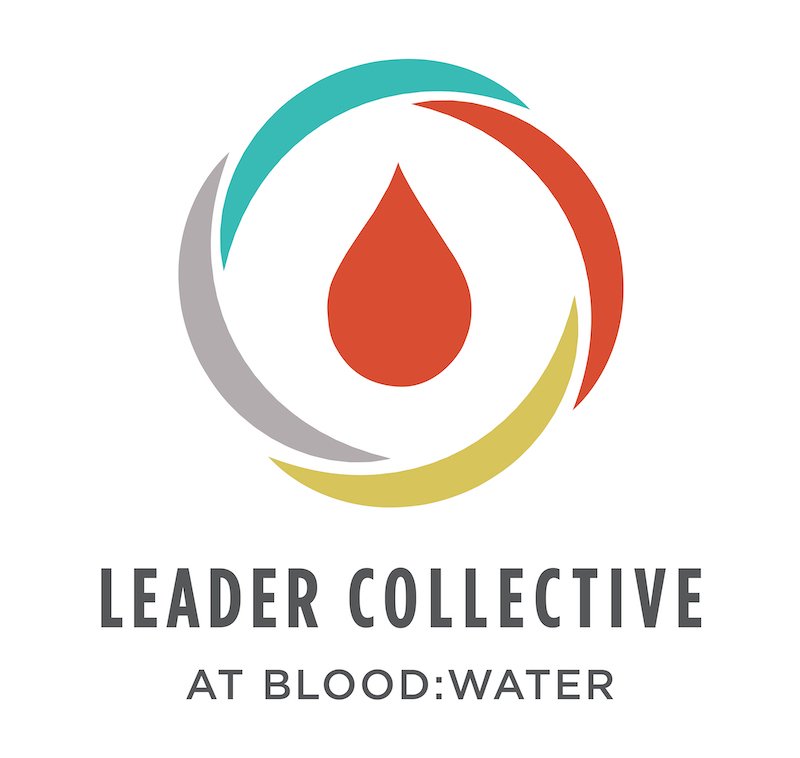What is Capacity Building? One Focus of Sustainable Development
You wouldn’t ask a dentist to do your taxes, or your mechanic to bake the cake for your child’s first birthday, so why would you expect an outside organization to walk into a community and know the best solutions for solving water and HIV/AIDS crises there? The experts are the people who are local to the area, who are already experienced in creating sustainable development for the people and places they know well and love enough to devote their livelihoods to making them better.
However, local organizations are often under-resourced, creating roadblocks to operations and sustainability of the solutions they implement. Since they are best equipped to make a difference, they need to be invested in as well.
Because of that knowledge and expertise, we want to help them drive this change how they see fit, based on what they see their true challenges to be. They choose solutions that will be most effective for them, based on what is actually needed in the community, and we come alongside them to help complete their goals, and improve their services beyond what they’ve done before.
WHAT IS CAPACITY BUILDING?
The water, HIV/AIDS, and now COVID-19 crises will not be solved by outsiders. These crises will be impacted most directly by those organizations living and working in the communities they serve. The sustainability of their work is only as effective as the strength and health of their organization. Providing the resources and tools needed to expand and sustain these local organizations is our missional mandate.
– Jake Smith, Executive Director, Blood:Water
One of the foundational elements of the Blood:Water model is organizational strengthening (OS): the capacity building processes our partners invest in to improve their institutional and technical capacities for the delivery of high-quality programs and efficacy of their missions. We started our OS program in 2015, and since then, we have already seen amazing strides in our partners’ growth and our ability to be a helpful resource for them in this area!
It’s easy to prioritize program efforts over capacity building, and often funders expect organizations to spend every dollar they earn on programmatic operations. Without a focus on building internal capacity, organizations can’t achieve their potential and can even lose effectiveness over time. Ultimately, we want our partners to be strong enough financially, technically, operationally, and internally to exist long after our partnership concludes.
This means investing in things like improving how well the team works together through everything from a system to record how many community members received WASH (water, sanitation, and hygiene) training to creating an onboarding process and employee manual for those joining the organization. It can also include hiring a professional to teach staff how to create simple flyers and materials to distribute health information quickly, for example.
Without these focuses, an organization cannot provide services to their full potential, because they are held up in the minutiae that makes the work efficient and doable long-term. Blood:Water provides up to $10,000 USD in every two-year funding cycle to help each partner grow in the areas they have identified through their improvement plans.
HOW WE DO IT: OUR MODEL
“Blood:Water works to build the capacity of our organization based on our needs. This has enabled us to begin to address things we needed to change in order to strengthen and improve our organization. Our partnership with Blood:Water has greatly built the image and visibility of our organization at community, district, and national levels.”
— A B:W PARTNER EXECUTIVE DIRECTOR
Our goal is to build our partners’ capacities so they can have generational impact. We strategically fund our partners through specific project activities that aim to strengthen systems and enhance their quality of services and accessibility to the community. Also based on best practices in sustainable development, our model holistically focuses on four key capacity-building areas: organizational, technical, monitoring and evaluation, and financial.
Institutional Development Framework (IDF)
The IDF is a trusted tool used to assess the health of an organization, with a twenty-year history based on best practices. Blood:Water conducts the process with each partner once per two-year grant cycle, with the understanding that they won’t be penalized if they identify a low score in a particular area; this is meant to be a helpful process that strengthens the entire organization.
To start, a diverse selection of representatives from an organization’s board, management, and staff meets with an external consultant. Because this is an open forum for a group of stakeholders from various levels of the organization, this allows for a diverse, unbiased self-critique in a way that will enable them to honestly talk through how they are doing in various areas.
Then, they identify priorities for investment, which are laid out in an improvement plan that will track progress and growth in these areas. Throughout the rest of the partner’s grant cycle, Blood:Water checks in to see how they are progressing toward their goals and if there are additional ways we can assist them in reaching them.
Check out our blog that goes into more depth about the steps to complete the IDF and criteria for scoring!
Putting the Plan Into Practice
Based on the goals and plans from their IDF assessments, partner team members receive training, mentoring, and other forms of support based on what they need most. From the 28 total systems officially deployed through all of our partners’ efforts, we’ve learned a lot about how to serve them and ensure our offerings are contextualized and appropriate, so that they can continue their work long after our partnership is complete.
Since 2015, we have trained more than 345 individuals on subjects that their organizations determined would contribute to improved operations. And after completing training, they can share knowledge with others, and implement this information as a regular practice in the whole organization! With more than 44 policies and plans developed by partners, we are confident that they are able to analyze themselves and to create steps for sustainable development as an organization.
“In this quarter, PIH with the help of a Blood:Water consultant convened organizational strengthening (OS) as a capacity-building process through which PIH identified 5 priority areas to work on and eventually improve our institutional and technical capacities for the delivery of high-quality programs… We believe the face of our organization and capacity of staff to reach program goals will change for the better once these priority areas get addressed with this additional OS financial support.”
– Partners in Hope, a Blood:Water Alumni Partner
Partner Summits
In 2015, we also began hosting annual Partner Summits, where we gather representatives from each of our partners for a week of collaborative learning. Through training and peer learning sessions, they have the opportunity to strengthen and encourage one another as they share their ideas, experiences, and victories.
Over time, they have become bi-annual, but due to COVID, our 2020 Partner Summit has been postponed indefinitely. Hopefully we will be able to work something out for the coming year, but here are some reflections on past summits:
2015-Day 1, Day 2, Week Wrap Up
2016-Day 1, Wrap Up, Looking Back
2017-Prayer Request, Attendees Highlight, Looking Back Parts 1 and 2
LONG-TERM IMPACT
“The ongoing investment in organizational strengthening support by Blood:Water has been greatly beneficial to LWALA. This form of capacity building support that allows us to define our own priorities is empowering. We have worked on a number of projects aimed at improving our systems and we are a far better organization than what we were several years ago.”
The Leader Collective
We are so excited to announce the rollout of The Leader Collective: a community of practice to convene, cultivate, and amplify African leadership driving health, development and social change. This will be a resource for our partners according to our mission, and to similar organizations to catalyze change that positions African leaders and communities at the center, owning and driving sustainable development processes.
The Leader Collective aims to build meaningful connections through thought exchange, peer support, mentorship, and learning; expand access to resources and tools that strengthen leadership; generate research and best practices on models of community development, etc; and positively influence development and philanthropy by promoting African-led and community-driven partnerships.
We’ll be doing a blog soon with more information, but in the meantime, you can read more and sign up for updates here!
Looking Forward
Before COVID-19, we were seeing positive trends in our organizational strengthening initiatives. Unfortunately some of these activities revolve around group gatherings and physical proximity of staff, so we all had to adjust some of our operations. However, we saw increased engagement by partners since many of the activities were virtual and more accessible!
Sometimes external circumstances (disease, economic hardship, natural disasters) can take precedence for a season, but we make sure our partners are able to pivot according to their needs so that they can quickly adapt to their circumstances. Here’s a recent update about a few of our partners’ flexibility and quick action to address the ongoing COVID-19 pandemic in Africa.
These life-changing organizations with localized expertise are essential to sustainable development in solving iniquities and crises around the world, so it is only right that we seek to strengthen their abilities so they can continue and improve their work! See highlights of this essential leadership in the recipients of our Leader of the Year Award for 2021: Jimmy Katuma, Geoffrey Kinaalwa, Hermella Woldehana, and Julius Mbeya.
More Stories:
Categories











